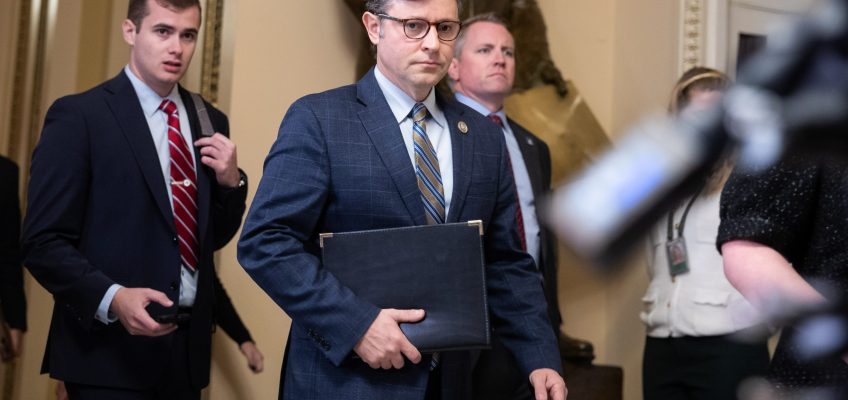With House Republicans clinging to a narrow majority ahead of the 2024 elections, it’s only natural that the party would worry about whether new House Speaker Mike Johnson has the fundraising chops to enable the GOP to hang on.
But there’s another, related question that isn’t getting much airing — and may be just as critical to the party’s prospects next year: What kind of political creature is Johnson? How much does he understand about the modern political map and the field conditions affecting his conference?
All members of Congress are political animals, of course. But the ones who rise on the national stage often have a more sophisticated and nuanced grasp of the political landscape beyond their own backyard, and a climatologist’s feel for the atmospheric patterns from state to state and region to region.
Kevin McCarthy, Johnson’s predecessor as speaker, is one of those politicians. A former district director for Rep. Bill Thomas (R-Calif.), minority leader of the California House and head of recruiting for the National Republican Congressional Committee, he was primed for the political dimensions of the House speakership. Even as McCarthy ran for an open seat in Congress in 2006, he was sending donations to other aspiring House Republican candidates in contested races across the nation.
Nancy Pelosi, the former Democratic speaker, was introduced to campaigns and elections at an early age — her father was a big-city mayor with an urban machine to attend to. Before winning election to Congress, she served as state party chair of California — back when it was still a competitive two-party state — and got a crash course in the political distinctions between Northern and Southern California, Orange County and Marin County, the Central Valley and Silicon Valley.
Johnson, on the other hand, has a far more limited range of experience. His political frame of reference is essentially the Trump era. A constitutional lawyer and talk show host, he was unopposed in his special election to a single term in the state legislature in 2015 and then won election to Congress in 2016.
He had to win a crowded primary to capture his Northwest Louisiana-based congressional seat, but he’s never broken a sweat since then. Johnson has skated to reelection three times in his comfortably Republican district; last year, he had no opposition at all.
Johnson hails from a one-party district in a one-party state — and that state is Louisiana, which holds off-year legislative and gubernatorial elections and has a unique primary system that makes it something of an exotic among the 50 states. Louisiana politics is not for the faint of heart, but neither is it the best preparation for the business of defending 221 seats spread across nearly every region of the nation.
Johnson will need to get up to speed quickly on the very different pressures faced by many of his GOP colleagues — 18 of whom sit in districts carried by President Joe Biden in 2020. In those places, Johnson’s call for a national abortion ban and his leading role in attempting to overturn the 2020 election results will not be helpful to them. Most, if not all, of those Biden-district Republicans will be pedaling hard to distance themselves from their party leader on the campaign trail.
In that sense, Johnson’s social conservatism, fidelity to Trump and red-state pedigree could make him a partisan bogeyman similar to Pelosi. Her wealth, liberal politics and San Francisco base made her easy to caricature in GOP campaign ads against vulnerable Democrats. Demonizing Johnson is the Democrats’ hope and intention, at least. There’s no guarantee it will work: It could take years before Johnson, who is largely unknown, builds any name recognition.
Pelosi, like McCarthy, had an ace in the hole — she minted money for her caucus. Johnson has the unenviable task of following two of the most prolific fundraisers Washington has ever seen.
Next year, there will be a simple way to test Johnson’s ability to master the political dimensions of the speakership. There are a handful of first-term New York Republicans — in places like the Hudson Valley and Long Island — who could be the difference between holding and losing the majority. Is Mike Johnson an asset, a liability or a wash for them?


Leave a Reply